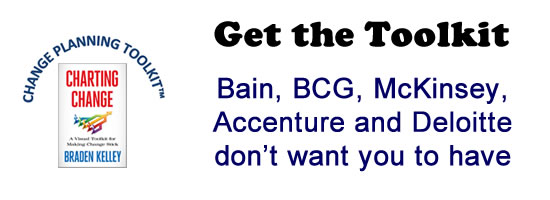One Thing You Won’t Find in Any Book on Entrepreneurship
No entrepreneur wants to end up doing this, but most will. Here’s how to handle it and the inevitable frustration it brings.

The entrepreneurial journey is filled with surprises, joys, and frustrations. Like so many things in life, you can read all you want to help you navigate it, but in the end it all pales when compared to actually living it. Those that have taken the journey will agree that few things teach you as much about business, markets, innovation, people and yourself.
But there’s one aspect of entrepreneurship that nobody wants to talk about. There are no books on it, not a single Ted talk, and you’ll never hear it discussed when aspiring entrepreneurs gather to share a vision of their future. Yet, it’s inevitable for the overwhelming majority of entrepreneurs; they end up working for someone else.
The math is simple, eight out of ten small businesses eventually fail. And of those that succeed nearly one third will be sold, acquired, or merge with larger organizations.
So, unless you have built a life style business that can be sustained indefinitely you are likely to end up working for someone else.
Whichever path you business takes, if you’re like every entrepreneur I’ve ever met, you did what you did because you had to chase your dream. Congrats, because that alone sets you apart from the vast majority of people who do not follow their dreams. And it gives you a perspective on running a business, dealing with people, and the importance of taking full responsibility that relatively few have. Oh, I forgot to mention, you also did it because you wanted to be your own boss and live by your own rules.
As an entrepreneur who has built and sold your business or as one that has had to walk away from it, you bring incredibly valuable qualities and insights to any business, as long as you keep a few things in mind.
You Need To Innovate Twice As Hard
When I sold my last business to a large multi-billion dollar corporation one of my biggest frustrations was not only seeing but being part of, and having to use, processes and systems that where, to my way of thinking, archaic, mired in bureaucracy, and simply ineffective. Here I was, former CEO of a formidable consulting company that was advising F500 companies on how to re-engineer their business processes, yet, I was now an insider and my opinions, while respectfully acknowledged, were suddenly discounted in a way I wasn’t expecting.
I quickly realized that in many ways this was no different than building a business. As an entrepreneur I had learned that getting upset at the market was futile. That same lesson still applied. However, now I had two markets to navigate and introduce new innovations to, the one inside and the one outside.Both were stuck in their current way of doing things. So, now, I had to innovate twice as hard.
You See Things Differently, Don’t Expect Others To Do The Same
As an entrepreneur you already know that innovation isn’t about seeing something nobody else does but rather seeing what everyone else sees, but differently. Your gift is that you see opportunity for change in just about everything. It’s just the way you’re wired. That may be one of the most frustrating things about being an entrepreneur inside of a larger organization. You wonder why everyone else doesn’t see the same opportunities for change. Unfortunately, most entrepreneurs, who have become accustomed to doing things their way, end up trying to convince everyone else that they’re doing things wrong. Good luck with that.
In a large organizations change happens because of three things; a crisis forces it, leadership mandates it, or markets demand it. There’s not much you can do about the first, so find ways to get an internal or external champion who shares your perspective and then build a track record of success that will give you license to change things.
It’s Not Your Politics Anymore
When you encounter the inevitable politics and gaming that occurs in every organization don’t kid yourself by thinking, “That’s not the way my company was.” One of the best lesson I got in politics was when I was complaining to a good friend, who was the executive VP in another multi-billion dollar company, that the politics among grown ups, at the company that had acquired us, was driving me crazy and standing in the way of just about everything. It slowed the organization down and made progress glacial. Without missing a beat my friend said to me, “It’s not the politics that bother you, it’s that they are no longer your politics!” Amen!
Shed The Risk Taker Image
Most people don’t get that entrepreneurs are not risk takers, at least not in the conventional sense of the word. We don’t gamble. We invest in ourselves. My mentor Peter Drucker often spoke of how in the mind of the entrepreneur risk is evaluated very differently than it is in the minds of most people. Traditional risk takers shift the responsibility for their success to fate and luck. That’s the definition of a gambler, they blame everyone but themselves unless they’re winning.
Entrepreneurs take full responsibility for their success, as well as their failures. This creates a level of ingenuity and creativity in how you approach most challenges that is well above the norm. For you there are no existential factors. It’s all on you.
However, make sure you’re sensitive to the fact that most people will view you as the lose cannon. You’re the guy or gal who took the kind of big bets that work well in a small disruptive company but not so much in a large more conservative culture.
The only way to shed the image of risk taker is to keep focusing on the importance of taking ownership and accountability for your ideas and actions. your co-workers will figure out soon enough that your a safe bet.
You’re Still A Leader
If there’s one thing about entrepreneurs that predominates their personality and drives their need to build a business it’s their inherent need to lead. But that’s the first thing they fear losing when they go back to being an employee. That’s a false fear.
If there’s one thing that people most need in any organization it’s leaders who will support their ideas, challenge then and give them space them to grow, and recognize their contributions. In many ways the larger the organization the more that’s needed. Ironically, I found that my leadership skills were never needed more than they were in a much larger organization after my company had been acquired. I had an intimate understanding of the value and the fine balance of challenge and recognition. But now I also had a new role, to defend and protect my people from all of the inefficiencies, politics, and scale that I didn’t have to worry about in my own organization.
In the end, what separates good entrepreneurs from great ones are the same things that separate good employees from great ones, they’re relentless innovators, they see opportunities for continuous change and improvement, they don’t get hung up on politics, they take ownership of their actions, and they challenge and recognize those they work with.
The bottom line is that everything you’ve learned is just as valuable as ever, if not more so. Your an entrepreneur and that journey never ends.
This article was originally published on Inc.
Wait! Before you go…
Choose how you want the latest innovation content delivered to you:
- Daily — RSS Feed — Email — Twitter — Facebook — Linkedin Today
- Weekly — Email Newsletter — Free Magazine — Linkedin Group
 Tom Koulopoulos is the author of 10 books and founder of the Delphi Group, a 25-year-old Boston-based think tank and a past Inc. 500 company that focuses on innovation and the future of business. He tweets from @tkspeaks.
Tom Koulopoulos is the author of 10 books and founder of the Delphi Group, a 25-year-old Boston-based think tank and a past Inc. 500 company that focuses on innovation and the future of business. He tweets from @tkspeaks.
NEVER MISS ANOTHER NEWSLETTER!
LATEST BLOGS
Three things you didn’t know about credit cards
Photo by Ales Nesetril on Unsplash Many of us use credit cards regularly. From using them for everyday purchases to…
Read MoreFive CV skills of a business-minded individual
Photo by Scott Graham on Unsplash The skills listed on a CV help employers quickly understand your suitability for a…
Read More


